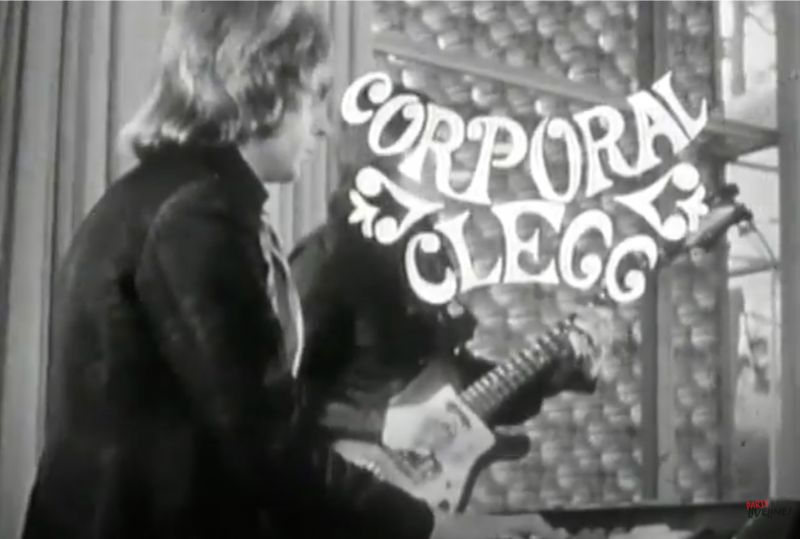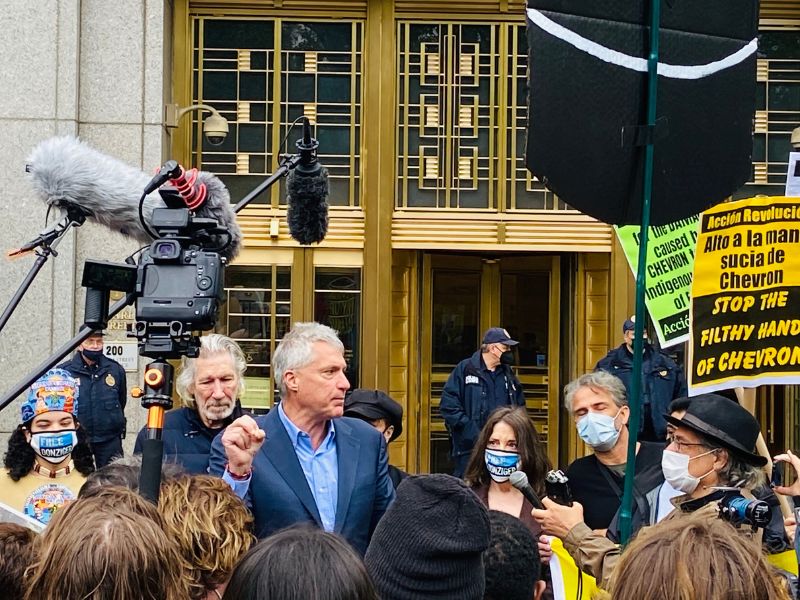
By Marc Eliot Stein, World BEYOND War, July 31, 2022
World BEYOND War is hosting a webinar next week with the great songwriter and antiwar activist Roger Waters. A week later, Roger’s “This Is Not A Drill” concert tour will be coming to New York City – Brian Garvey told us about the Boston show – and I’ll be there, tabling with our partner organization Veterans for Peace. If you come to the concert, please find me at the Veterans for Peace table and say hi.
Being the tech director for World BEYOND War has given me a chance to meet some of the exceptional people who years before helped me find my own path to peace activism. During a time in my life that I was not involved with any movement, I happened to read books by Nicholson Baker and Medea Benjamin that sparked ideas in my head that eventually led me to look for ways to get personally involved in the pacifist cause. It was a thrill for me to interview both of them on the World BEYOND War podcast and tell them how much their works had motivated me.
Helping to host a webinar with Roger Waters will take this to a new level for me. It was not years ago but decades ago that I first pulled a black vinyl disc from a black album cover depicting a beam of light, a prism and a rainbow, and heard a soft and sorrowful voice singing these words:
Forward he cried from the rear, and the front ranks died
The generals sat, and the lines on the map
Moved from side to side
Pink Floyd’s 1973 album “Dark Side of the Moon” is a musical journey into a troubled private mind, a tour de force about alienation and insanity. The album opens with an invitation to breathe, as swirling sounds depict the madness of a busy and uncaring world. Voices and heartbeats and footsteps fade in and out – airports, clocks – but the deep strains of the music pull the listener in past the noise and chaos, and the first half of the record ends with a respite of otherworldly, angelic voices crying out in harmonic empathy on the track called “The Great Gig in the Sky”.
On the second side of the album, we return to the roiling troubles of an angry world. The clinking coins of “Money” segue into the antiwar anthem “Us and Them” where the generals sit and move the lines on the map from side to side. There is a sense of stress so great that descent into madness feels inevitable – yet as “Brain Damage” breaks into the final track “Eclipse” we begin to sense that the voice singing to us is not insane at all. It’s the world that has gone insane, and these songs invite us to find our sanity by going inward, by trusting our instincts and ignoring the banality of the mob, by accepting our alienation from a society that we don’t know how to save, and taking refuge in the beauty of art and music and solitary, truthful living.
Often cited as Roger Waters’s most complete masterpiece as a songwriter and musician, the remarkable album “The Dark Side of the Moon” appears to be about insanity but on closer look is about the insanity of the outside world, and about the hard shells of alienation and anguish that some of us may need to form around ourselves to avoid getting subsumed by the urge to conform. It’s no accident that the album paraphrases Henry David Thoreau, a lone voice against conformity from another time and a different land: “Hanging on in quiet desperation is the English way”.
This album was important to me as a kid discovering music, and I’m still finding new meaning in it. I’ve come to realize that it’s not just the song “Us and Them” but the entire album that highlights the severe collision with polite conventional society that eventually forces every emerging political activist to choose a ground to stand on, to toughen up against the endless pressures of depressed defeatism, to commit completely to the causes that don’t allow us to choose halfway. I didn’t become a political activist when I became a Pink Floyd fan as a teenager. But I realize today how much Roger Waters’s songs helped me forge my own gradual path through a strange and alienating personal transition – and it’s not just explicitly political songs like “Us and Them” that helped me find this path.
The underground roots of Roger Waters’ first band go farther back than many realize. Pink Floyd would become very popular through the 1970s and 1980s, yet the band began playing gigs in England in 1965 and were a sensation in the formative early days of 1960s swinging London, where they were a favorite of the artsy crowd that listened to Beat poetry and hung around the now-legendary Indica bookstore, where John Lennon and Yoko Ono would meet. This was the 1960s culture Pink Floyd emerged from.
As one of the first and most original prog/experimental bands of the classic rock era, early Pink Floyd held down the scene in London during the same exciting years that the Grateful Dead were forming a scene with Ken Kesey in San Francisco, and the Velvet Underground were blowing minds in New York City with Andy Warhol’s Exploding Plastic Inevitable. None of these seminal bands were explicitly political, but they didn’t have to be, since the communities they provided music for were completely enmeshed in the antiwar and progressive movements of the time. Young people all over England during the 1960s were working hard and shouting loudly for nuclear disarmament and anti-colonialism, and their corresponding young people in USA were learning from a groundbreaking protest movement for civil rights that had been led by Martin Luther King and were now building, also with Martin Luther King’s sharp guidance, a massive new popular movement against the immoral war in Vietnam. It was during the heady days of the 1960s, that many of the seeds of serious protest movements that still live today were first planted.

Like the early Grateful Dead and the Velvet Underground, swinging London’s version of Pink Floyd laid out a thematic landscape deeply oriented in the dreamy subconscious, composing songs that seem to aim for a psychological territory between wakefulness and sleep. Roger Waters took over leadership of the band following Syd Barrett’s sad fade into actual madness, and “Dark Side of the Moon” vaulted Waters and his musical partners David Gilmour, Richard Wright and Nick Mason to massive international success, though every member of the band seemed admirably disinterested in the culture of celebrity and fame. Waters transformed his band for the punk-rock era in 1977 with the aggressive and Orwellian “Animals”, followed by “The Wall”, a psychological rock opera whose massive success and popularity would equal that of “Dark Side of the Moon”.
Has any rock songwriter ever laid bare his own flawed soul the way Roger Waters does in “The Wall”? It’s about a morose rock star who becomes wealthy, spoiled and drugged out, emerging as a literal fascist leader, haranguing his fans from the concert stage with racial and gender insults. This was Roger Waters’s ironic self-portrait, because (as he explained to the few interviewers he would talk to) he had come to despise his own rock star persona and the power it gave him. Worse, the fame he tried to avoid had completely alienated him from the people who came to his concerts and enjoyed his creations. Pink Floyd could not last much longer with this level of heated self-evisceration, and the band’s final great album in 1983 was virtually a Roger Waters solo work, “The Final Cut”. This album was an antiwar statement from start to finish, howling against Great Britain’s foolish and cruel short war in 1982 against Argentina over the Malvinas, bitterly calling out Margaret Thatcher and Menachem Begin and Leonid Brezhnev and Ronald Reagan by name.
Waters’s outspoken political activism gradually began to define all his work, including his solo albums and even the opera about the French Revolution that he composed in 2005, “Ça Ira”. In the spring of 2021 I attended a small rally at the downtown New York City courts for the courageous lawyer Steven Donziger, who has been unjustly punished for exposing Chevron’s environmental crimes in Ecuador. There was not a big crowd at this rally, but I was pleased to see Roger Waters there standing alongside his friend and ally and briefly taking the mic to say a few words about the Donziger case, along with the equally brave Susan Sarandon and Marianne Williamson.

Steven Donziger eventually spent a shocking 993 days imprisoned for daring to exercise free speech in criticism of a corporation as powerful as Chevron. I don’t know whether or not Roger Waters has ever been jailed for his activism, but he surely has been punished in the public eye. When I mention his name to some of my friends, even musically knowledgeable friends who understand the level of his genius, I hear ridiculous accusations like “Roger Waters is anti-semitic” – a complete canard fabricated to damage him by the same kinds of powerful forces who pulled strings for Chevron to put Steven Donziger in jail. Of course Roger Waters is not anti-semitic, though he has been brave enough to speak out loudly for Palestinians suffering under Israeli apartheid – as we all must if we are willing to face reality, because this apartheid is a devastating injustice that needs to end.
I don’t know what Roger Waters will talk about in our webinar on August 8, though I have seen him in concert many times and have a pretty good idea what kind of a kickass concert he’ll put on on August 13 in New York City. The summer of 2022 is a hot, tense time in the United States of America. Our government seems more feckless and corrupt than ever, as we slip and slide into proxy wars motivated by corporate profits and fossil fuel addiction. Frightened and depressed citizens of this broken government fortify themselves with military weapons, swelling the ranks of paramilitary groups, as our police forces transform themselves into military battalions aiming weapons at their own people, as our stolen Supreme Court initiates a new horror: the criminalization of pregnancy and healthcare choice. The death count in Ukraine is over 100 human beings a day, as I write this, and the same donors and profiteers who pushed that terrible proxy war seem to be trying to start a new humanitarian disaster in Taiwan in order to gain economic advantage over China. The generals are still sitting, moving the lines on the map from side to side.
This article is read aloud by the author as part of Episode 38 of the World BEYOND War podcast, “The Lines on the Map”.
The World BEYOND War Podcast page is here. All episodes are free and permanently available. Please subscribe and give us a good rating at any of the services below:
World BEYOND War Podcast on iTunes
World BEYOND War Podcast on Spotify
World BEYOND War Podcast on Stitcher
World BEYOND War Podcast RSS Feed








